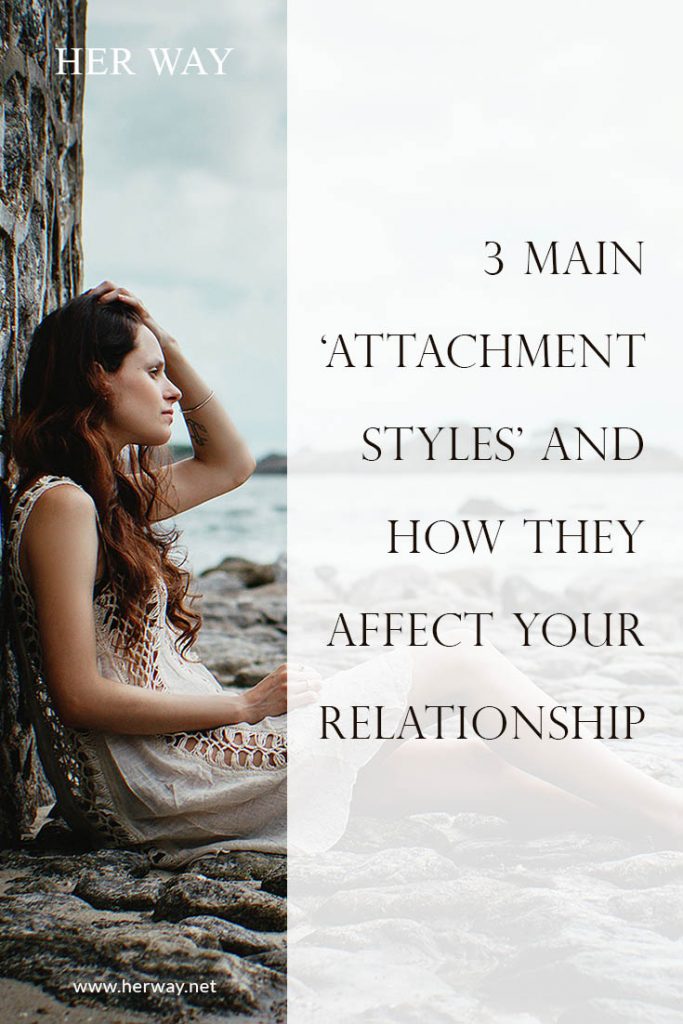Have you ever felt like you keep repeating or reliving the same scenario when it comes to your love life? The one that goes downhill. The one in which you have the same behavioral patterns. The main cause of that might be your attachment style.
Attachment style is something we develop in our early childhood and it affects our further adult life immensely. It’s caused by the relationship we have with our parents or caregivers.
Why is it important for you and your relationship to know your attachment style?
Identifying your attachment style helps you determine if you are truly compatible with your partner.
Also, your attachment style sets the way you choose your partner and the way in which your relationship progresses.
The bad thing is that you can’t know your partner’s attachment style until you are in a relationship with them.
For instance, a lot of toxic manipulators will be charming at the beginning of the relationship and you won’t discover their true nature until it’s too late.
To be able to understand this concept better, we will take a look at the three main attachment styles and the effects they have on your relationship.
1. Secure attachment
Relationship behavior:
People who belong to this attachment style are able to fully trust their partner. They don’t show any signs of jealousy or possessiveness toward their partner.
They and their partner are sure of each other and in their relationship. They don’t have to text or call when they are out with friends. They have their own, which is a great thing.
But what’s even better is that they also have the life they share together, things to do alone and mutual friends to hang out with.
Their relationship is healthy. It’s not suffocating in any way. They love in such a way that makes them feel free but nevertheless strongly bonded.
Childhood influence:
They grew up in a safe and loving environment. Their parents or caregivers taught them that they would always be there every time they went back to them.
They subconsciously apply this behavior to their relationship. No matter how long they spend doing something without their partner, they can always count on going back to them.
2. Anxious attachment
Relationship behavior:
This style is characterized by people who are full of insecurities and lack confidence, primarily in themselves and then in the relationship.
They will want to spend all their time in their apartment and every time their partner is not with them, they will be overwhelmed by the feeling of jealousy. They are possessive and controlling.
They fear that they will lose their loved one if they are out of sight, that’s why they don’t leave them be. They are on their case at every given moment.
They text and they call when you are hanging out with someone else. They don’t really understand why you need other people besides them in your life.
In worst cases, this attachment style can result in toxic and abusive behavior and can become very dangerous for both your mental and physical health.
Childhood influence:
Someone who is connected to this attachment style had a bit rough childhood. They never really got what they needed from their parents or caregivers.
They didn’t feel safe or heard. They lacked attention and most probably affection. They are scared that their romantic relationship won’t give them what they need either.
3. Avoidant attachment
Relationship behavior:
As the name indicates, people who have this attachment style avoid relationships. They avoid getting too close to someone.
Even if they enter into a relationship, it took a lot from them to surpass their fears and take a leap of faith. But usually, due to their deeply rooted trust issues, those relationships don’t last long.
They enter a relationship believing or fearing that it will fail and it usually happens that way. It’s like a self-fulfilling prophecy. They attract what they believe in.
So in a way, they are sabotaging their own relationships. They are not sure of themselves and deep down they just think they are not good enough. That’s why they are often clingy or needy.
Childhood influence:
For some reason, people of this style were actually detached from their parents or caregivers. It could be either or both physically or emotionally.
It doesn’t have to be that their parents abandoned them exactly—they might have spent a lot of time in a hospital or somewhere where they couldn’t see their parents as much as they needed.
They might have been living in the same house but had parents who were workaholics or even addicts and didn’t pay enough attention to them.
What to do about it?
Just because your attachment style is anxious or avoidant, that doesn’t mean it cannot be helped. You can still be in a happy, healthy and long-lasting relationship even though it’s not going to be easy.
The best thing to do is seek professional counseling, trust the process and be patient. The more extreme the attachment, the more time will it take to heal.
It’s really hard to do anything on your own but the sole fact that you know your attachment style is taking you one step closer to solving your issues.





